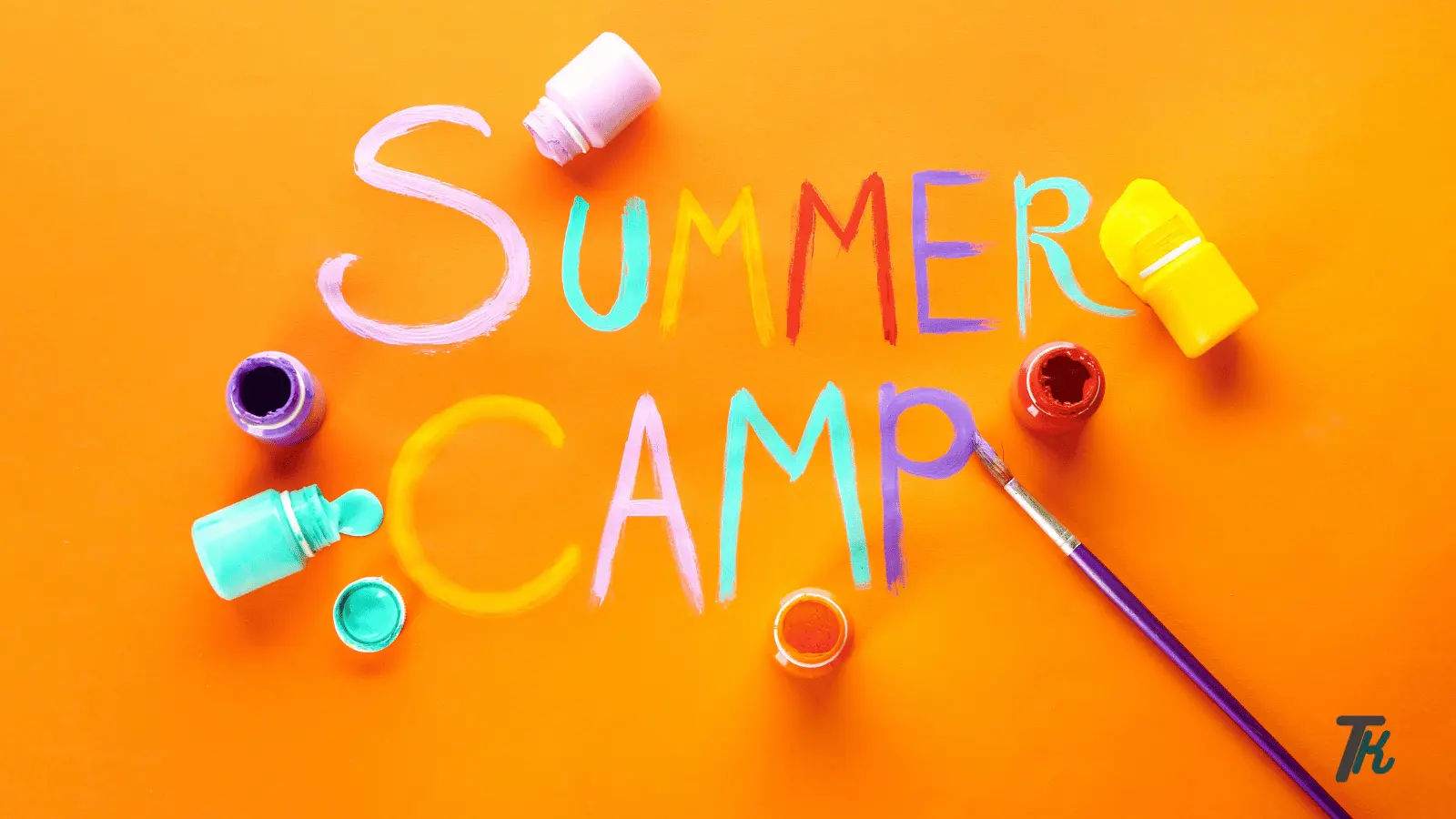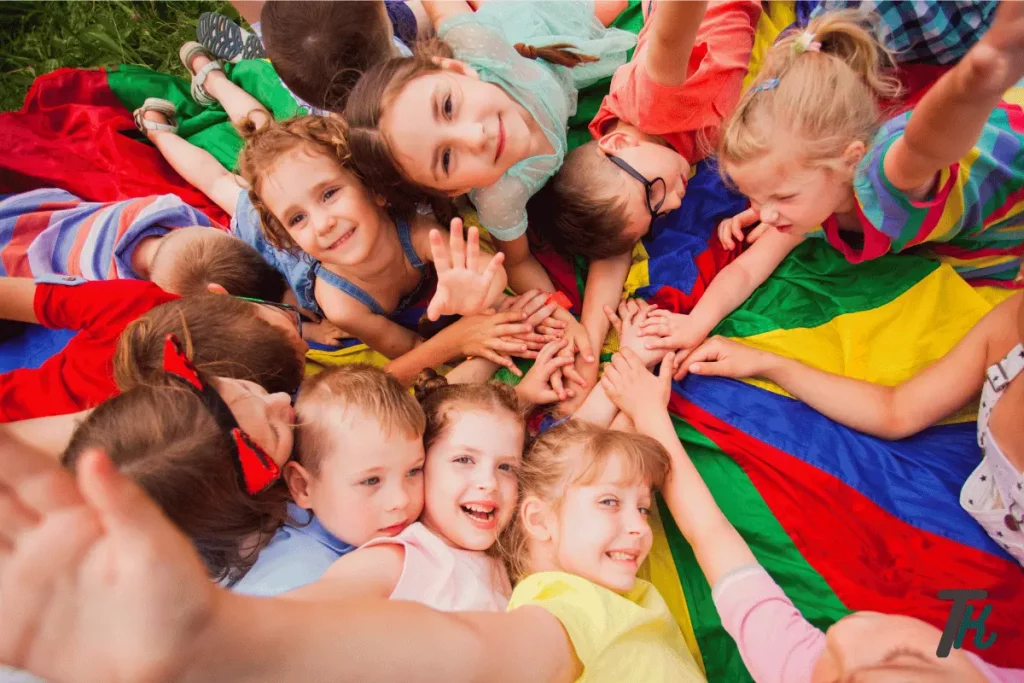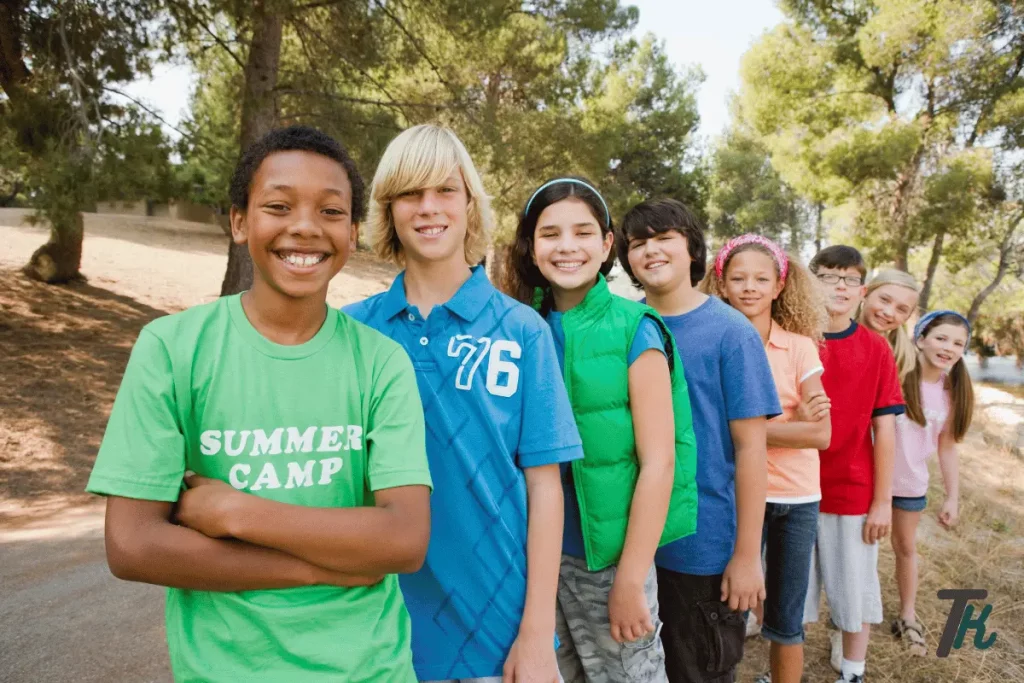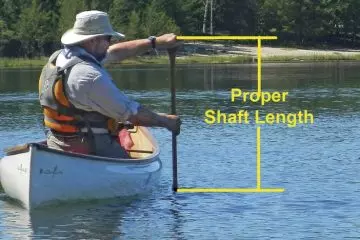As an Amazon Associate, I earn from qualifying purchases.
This article from the teamkathycarter website discusses How Long summer camps are.
Summer camps can vary in length, from a week to several weeks or the entire summer. The durations of summer camps are typically divided into week-long stays or day camps.
Summer camps offer various activities for kids and teens, allowing them to make friends, learn new skills, and enjoy the outdoors. Parents often consider the right age to send their children to summer camp, usually between seven to ten years old.
Whether it’s a day camp or an overnight camp, the experience can be enriching and memorable for young campers. Understanding the length and timing of summer camps can help families plan an enjoyable and rewarding experience for their children.
The Duration Of Summer Camps
Summer camps are a fantastic way for kids to have fun, learn new skills, and make lasting memories. Depending on your preference and schedule, summer camps vary in duration. They can range from short week-long stays to camps that last the entire summer.
Week-long Camps
Week-long camps typically last for about 5 to 7 days, providing a condensed but immersive experience for campers. These shorter sessions are perfect for those looking for a brief yet impactful camp experience.
Multiple Weeks Camps
For a more in-depth camp experience, multiple-week camps are a popular choice. These camps usually run for 2 to 4 weeks, allowing campers to delve deeper into activities, form stronger bonds with peers, and explore a wider range of skills.
Entire Summer Camps
If you’re seeking a comprehensive summer experience, entire summer camps offer a full summer of adventure and growth. These camps typically last 8 to 10 weeks, providing ample time for campers to fully engage in the camp’s offerings and create lifelong memories.
Age Considerations For Summer Camps
Choosing the right summer camp for your child involves considering their age, developmental factors, and their own comfort level with being away from home. Every child is unique, and finding the perfect fit requires taking these factors into account.
Recommended Age Range
The recommended age range for summer camps typically falls between seven and ten years old. At this stage, most children have developed enough independence to handle being away from their parents for a few days or even several weeks.
However, it’s important to remember that every child is different, and some may be ready for camp earlier or later. Factors such as maturity level, social skills, and past experiences away from home can all play a role in determining if a child is ready for a summer camp experience.
Developmental Factors
When considering summer camps, it’s crucial to take into account a child’s developmental factors. These can include their physical, cognitive, and emotional development.
- Physical Development: Children should be physically capable of participating in the activities offered at the camp. For example, if it involves swimming or hiking, they should be able to perform these tasks safely without assistance.
- Cognitive Development: Camps may have age-specific programs and activities that are designed to challenge a child’s cognitive abilities. It’s important to choose a camp that aligns with your child’s current cognitive capabilities.
- Emotional Development: Being away from home can be a big emotional adjustment for some children. Consider your child’s comfort level with new environments, sleeping away from home, and their ability to handle possible homesickness.
By taking these developmental factors into consideration, you can ensure that your child’s summer camp experience will be enjoyable and beneficial to their growth.
Variability In Camp Length
Summer camps can vary in length, lasting from a week to an entire summer. They typically offer both short week-long stays and longer programs suitable for different age groups. Camp durations can range from a few days to one to two weeks, providing diverse options for campers.
When it comes to summer camps, one of the most common questions parents have is, “How long do they last?” The answer to that question can vary greatly depending on the type of camp and the preferences of the campers and their families. Summer camps can range from a week-long stay to several weeks, or even the entire summer. Let’s explore the different options for camp duration and help you decide which one is right for your child.
Average Duration
The average duration of a summer camp is typically around one to two weeks. This length of time allows campers to fully immerse themselves in the camp experience, make new friends, and participate in a wide range of activities. It strikes a balance between giving children a taste of independence and adventure without being away from home for too long.
Shorter Program Options
There are plenty of options available for families who prefer a shorter camp experience. Some camps offer programs that last just a few days, allowing campers to have a taste of camp life without committing to a longer stay. These shorter programs are often a great starting point for younger children who may not be ready for a full week away from home.
In addition to day camps that operate on a daily basis, there are also overnight camps that offer shorter sessions. These sessions can range from a weekend getaway to a five-day adventure. These shorter camp options are perfect for families who have busy schedules or are looking to try out different camps before committing to a longer stay.
No matter the length of the summer camp, it’s important to remember that each experience is unique and can have a positive impact on a child’s personal growth and development. Whether it’s a week-long stay or a shorter program, summer camps provide opportunities for children to learn new skills, build confidence, and make lifelong memories. So, why wait? Start planning your child’s unforgettable summer camp experience today!
The Significance Of Summer Camps In The Us
Summer camps in the US typically last one to several weeks, providing children with a chance to participate in a wide array of activities. Day camps can last for a week, while sleep-away camps can last the entire summer, attracting kids aged 7 to 14.
Summer camps play a crucial role in the lives of children in the United States. These camps are not only an exciting way to spend the summer, but they also provide numerous benefits that contribute to a child’s overall growth and development. Let’s delve into the significance of summer camps in the US and why they are considered an important part of American culture.
Cultural Impact
Summer camps have a profound cultural impact on the US society. They have become a tradition for many families, with children eagerly looking forward to their camp experiences year after year. These camps promote the values of independence, resilience, teamwork, and adaptability among campers. Camps often bring together children from diverse backgrounds, fostering a sense of unity and cultural understanding. Through camp activities, kids get the chance to explore different cultures, traditions, and perspectives, expanding their horizons and promoting inclusivity.
Necessity For Children
Summer camps serve as a necessity for children. In today’s digital age, where children are spending more time indoors and glued to screens, summer camps offer a refreshing break and a chance for kids to reconnect with nature. Whether it’s a day camp or an overnight camp, children get the opportunity to engage in outdoor activities, enjoy physical exercise, and develop essential life skills. These camps provide a structured environment where children can learn valuable lessons such as problem-solving, decision-making, and communication. They also encourage creativity and allow children to explore their interests and passions in a supportive and nurturing setting.
Conclusion
Summer camps have a significant impact on American society and the lives of children. They promote cultural diversity, foster independence, and resilience, and provide a much-needed break from technology. Whether it’s a week-long adventure or an entire summer spent at camp, these experiences contribute to children’s growth and development, preparing them for future success.
Diverse Activities And Programs
Summer camps can vary in duration, ranging from weekly stays to the entire summer. In general, short sessions last about a week, while others, like day camps, offer several-week options catered to diverse activities and programs. It is essential to consider the child’s readiness and comfort level when choosing the best age for summer camp attendance.
In summer camps, children enjoy a wide range of diverse activities and programs that cater to various interests and skill sets. These activities are designed to provide fun and engaging experiences that foster personal growth and development in campers. From crafts and art to outdoor and sports activities, summer camps offer a rich array of options for children to explore and enjoy.
Crafts And Art
At summer camps, children have the opportunity to unleash their creativity through engaging crafts and art programs. They can explore various artistic mediums such as painting, drawing, pottery, and jewelry making. Campers are encouraged to express themselves through their artistic creations, fostering a sense of accomplishment and self-expression.
Outdoor And Sports Activities
Summer camps offer a plethora of outdoor and sports activities that encourage physical fitness, teamwork, and a love for the outdoors. Campers can participate in activities such as hiking, swimming, kayaking, and team sports like soccer and volleyball. These programs promote healthy habits and a love for nature while allowing children to develop their physical skills and coordination.
Local And National Summer Camps Offerings
Summer camps can vary in duration, with some lasting for a week, several weeks, or even the entire summer. They are typically divided into two categories: week-long stays, which include day camps, and longer sessions for sleep-away camps.
Local and National Summer Camp Offerings
With summer fast approaching, families are starting to plan their children’s summer activities. Deciding whether to explore local options or broaden their options with national summer camps can be a tough choice. Here’s a breakdown of the offerings available in Austin, Texas, and some popular national summer camp options to help make the decision easier.
Austin, Texas Summer Camps
When it comes to summer camps, Austin, Texas offers a diverse array of local programs catering to different interests and age groups. From the Austin Parks and Recreation summer camps designed to provide accessible and inclusive opportunities for the community to the Greater Austin YMCA summer day camps, there are options for children of all ages. These local camps usually last for a week or more, offering a variety of engaging activities to keep kids entertained and learning throughout the summer break.
National Summer Camp Options
Beyond the local offerings, families may also consider national summer camp options that provide unique experiences and exposure to different cultures. Camp Champions, located in Texas, is a popular choice for those looking for an overnight camp experience. National summer camps generally cater to a wider audience and offer a range of durations, with some lasting for a week while others may span multiple weeks.
In conclusion, whether families opt for a local or national summer camp, there are abundant opportunities for children to make the most of their summer vacation. So, what are your thoughts? Are local options better or do you prefer the idea of sending your child to a national camp? Let us know in the comments!
Cost And Accessibility Of Summer Camps
Summer camps vary in duration, ranging from a week to several weeks, or even the entire summer. Camps are typically categorized as week-long, including day camps that last about a week, catering to different schedules and preferences.
Financial Considerations
Summer camps vary in duration and cost, catering to families with different budgets and financial capabilities.
Accessibility And Inclusion
Summer camps aim to be inclusive, offering programs that are available to children of diverse backgrounds and abilities.
When choosing a summer camp for your child, consider the following factors:
- Cost implications for different camp durations
- Financial aid or scholarships available
- Transportation and location accessibility
- Inclusive programs for children with special needs
Summer camps provide valuable experiences, and understanding the financial and accessibility aspects can help you make a well-informed decision for your child’s summer activities.
Frequently Asked Questions On How Long Are Summer Camps
How Long Does Camps Last?
Summer camps can last one week, several weeks, or the entire summer, with options for day camps or sleep-away camps. Most children are ready for camp between ages seven and ten, and camp durations vary from one to eight weeks.
How Long Are Summer Camps In The US?
Summer camps in the US generally last for a week, several weeks, or the entire summer. They can be categorized as day camps or overnight stays, and are typically suitable for kids aged seven and older. Sessions vary from one to eight weeks.
Is 16 Too Old For Summer Camp?
At 16, you may feel too old for most traditional summer camps that cater to younger children.
What Is The Best Age To Go To Summer Camp?
The best age to go to summer camp is between seven and ten years old. However, the right age varies depending on the child’s developmental level, interests, and comfort level. Summer camps can last for a week, several weeks, or the entire summer, with options for both sleep-away camps and day camps.
Faq 1: How Long Do Summer Camps Generally Last?
Summer camps can last a week, several weeks, or even the entire summer. They are generally divided into two categories: week-long stays and day camps.
Faq 2: What Is The Ideal Age For Kids To Attend Summer Camps?
The right age for sending kids to summer camp varies based on their developmental level, interests, and comfort being away from home. Most children are ready between the ages of seven and ten.
Last Word about How Long Are Summer Camps
Summer camps can range from a week to the entire summer, offering different durations for all. Choosing the right length depends on your child’s readiness and interests. With various options available, finding the perfect summer camp fit is an exciting adventure for families.
As an Amazon Associate, I earn from qualifying purchases.






